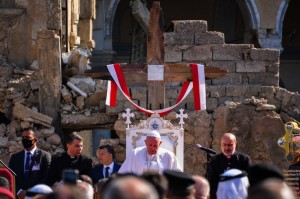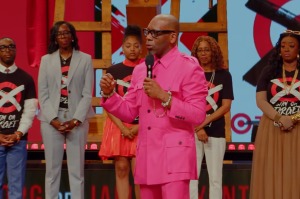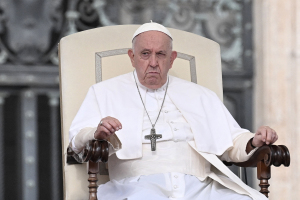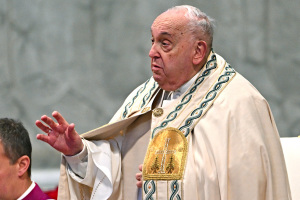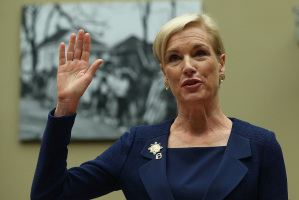Conversations That Heal: A Christian Response to Racism
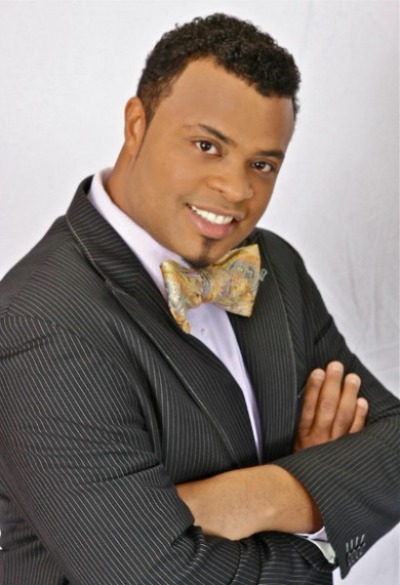
The initial trauma has passed. However, the horrible racial violence in Charleston must not fade and become just another historical footnote. I feel compelled to remind Christians of the following undeniable fact: every American citizen should loathe the racial hate that lurks in the shadows of a civilized society.
Dylann Roof's terroristic attack, assassinating nine blacks at the Emanuel African Methodist Episcopal Church in Charleston, reveals concrete evidence that the evils of racial hate that was present in slavery and in the Jim Crow Era survives in contemporary times. In fact, Roof's attack brings to many African American's minds that dreadful historic 16th Street Baptist Church bombing of 1963 in Birmingham, Alabama where 4 young children were killed.
Christians were at the forefront of the Abolitionist Movement 150 years ago, and we again need to be the catalysts for constructive discourse that is framed with the following sentiment: "Now that we see that racism remains destructive in our country, how do we work harder to cure this heinous disease?"
While I do not claim mastery on curing this problem, I do believe that together we have an urgent role in the healing process. We cannot allow the horror of any evil to control one's attitude nor to snuff out hope.
The first step is that we collectively not only agree but confront and condemn the destructive reality of deeply rooted racism in our country.
There is no denying that since the Civil Rights Movement, the South has progressed in race relations, though there remains some degree of residual racist attitudes ingrained in America's cultural and systemic fabric. Yet, when we hear that a young white man has entered into a Black Church for the sole purpose of performing racial terrorism, we cannot help but feel a tugging of that ole' evil plague of a former outrageously racist Deep South echoing from the corridors of slavery and Jim Crow into contemporary times.
Some Americans caution not to over-react. One may say, "Dylann was only one deranged young racist." While it is somewhat true, there are undoubtedly more racial elitists who are disguised or suppressed by laws that now call racially motivated violence illegal. Also, racial violence seems taboo within the dominant society.
Another passive reaction to Roof's domestic terror as been, "Don't stir up division. Try to share love." Such response is nothing short of a falsified approach to unity. Enough with hypocrisy! The Church's most honest approaches to civilized, constructive discourse both unearths the reality of racial hate and works to heal it. We will not achieve unity without honesty!
Secondly, confronting racism entails an honest discussion about power. The privileged live with an entitlement to power. The underprivileged suffer from access to equal power to excel. A people-group who live in a privileged reality is often blinded by the privilege that they enjoy, a privilege that is disproportionate to another people-group. The issue of privilege for whites and the lack thereof is deeply rooted in the tapestry that formed the country.
Though laws have changed and society has progressed, generations of white privilege and black under-privilege have shaped society such that whites are often numb to the reality of their disproportionate privilege to blacks. And, blacks are often naïve to the systems of under-privilege that helped to form the current blight of many of our communities.
Such systemic racism has become a cultural attribute, intrinsic to shaping and re-visioning racial superiority among many whites and inferiority among many blacks. It shapes a culture of racial biases that lead to police killings of blacks, racial terrorism inflicted on blacks, and other race-related hate crimes. The acts of racial violence are a serious crisis but the attitudes that lead to them are deeply rooted in the issue of power and privilege that pervades our systems. Systemic racism is equally serious to isolated acts of racial terror.
Thirdly, confronting racism includes honest conversations with love. Love does not evade the truth about racism's continued existence in America. We — black, white, Democrats, Republicans, and all other people — must talk with each other about the issue of race.
Racism is evil; it is, moreover, oppressive to its target group. It creates a culture of anxiety and mistrust; it leads to nothing more than terrible outcomes, as we see in South Carolina, and other places.
Thus, confronting racism in love and with civilized conversation to move our culture toward the unity that we desperately need. Failing to deal with hate's reality sacrifices truth for fear and will never result in "one nation under God, indivisible with liberty and justice for all" that the American Pledge of Allegiance promises.
Fourthly, confronting and fighting racism should not become a racial war. Black and white people are both victims of this American social problem. Blacks experience it from an underprivileged position and whites from a privileged position. To cure the problem, however, we need to cure the plague of oppression as well as the blindness of privilege. All of American society must come to terms with the existence of pride and hate that resides deep in her systemic and cultural crevices since the nation's inception.
We will not achieve a sincere hope for change by pretending that it does not exist. Even more so, we cannot truly model a society of unity if white people either evade the conversation or approach the conversation defensively.
By the same token, black people will not participate in the healing process by creating spaces for only black people to discuss the problem among ourselves or with anachronistic Civil Rights approaches form the 1950s and 60s.
We need new ways of engagement. We need intentional steps forward and leadership that takes a balanced approach in facilitating discourses for common good.
The Christian community must lift up our voices like a trumpet. Why should we be silent on issues that matter to common humanity? All too often, Christians cater to political expediency and ignore the underbelly groans of common humanity. Racism is evil. The internal norms of the Gospel call for Christians to speak up and to participate in propelling American systems and the culture toward the hope of a society that is free of hate.
To borrow from Dr. Martin Luther King's eulogy for the four girls, victims of the 16th Street Baptist Church bombing in 1963, the blood of the nine people, slain at the Emanuel AME Church in Charleston jolts our consciousness to the reality that more needs to be done "to transform the negative extremes of a dark past into the positive extremes of a bright future."
This is an important time for all Christians to lead in positive extremes of a bright future — tackling evil with love and with intentional efforts to bring unity that is so desperately needed. There is no greater witness for Christ; no greater stand for truth and unity than to speak up and speak out.
This is a call for all Christians to condemn the lingering negative attitudes on the basis of race and hate in every segment of society. Racial evil is neither a black problem nor a white problem. This is a human problem. We can no longer ignore racism. We must confront it; name it; reject it; fight it; kill it; and forbid that it returns.
If we are to build a better society for our children and our children's children, we must snuff out the evil that our forefathers dealt with but did not completely destroy. Let's talk and heal together!
















